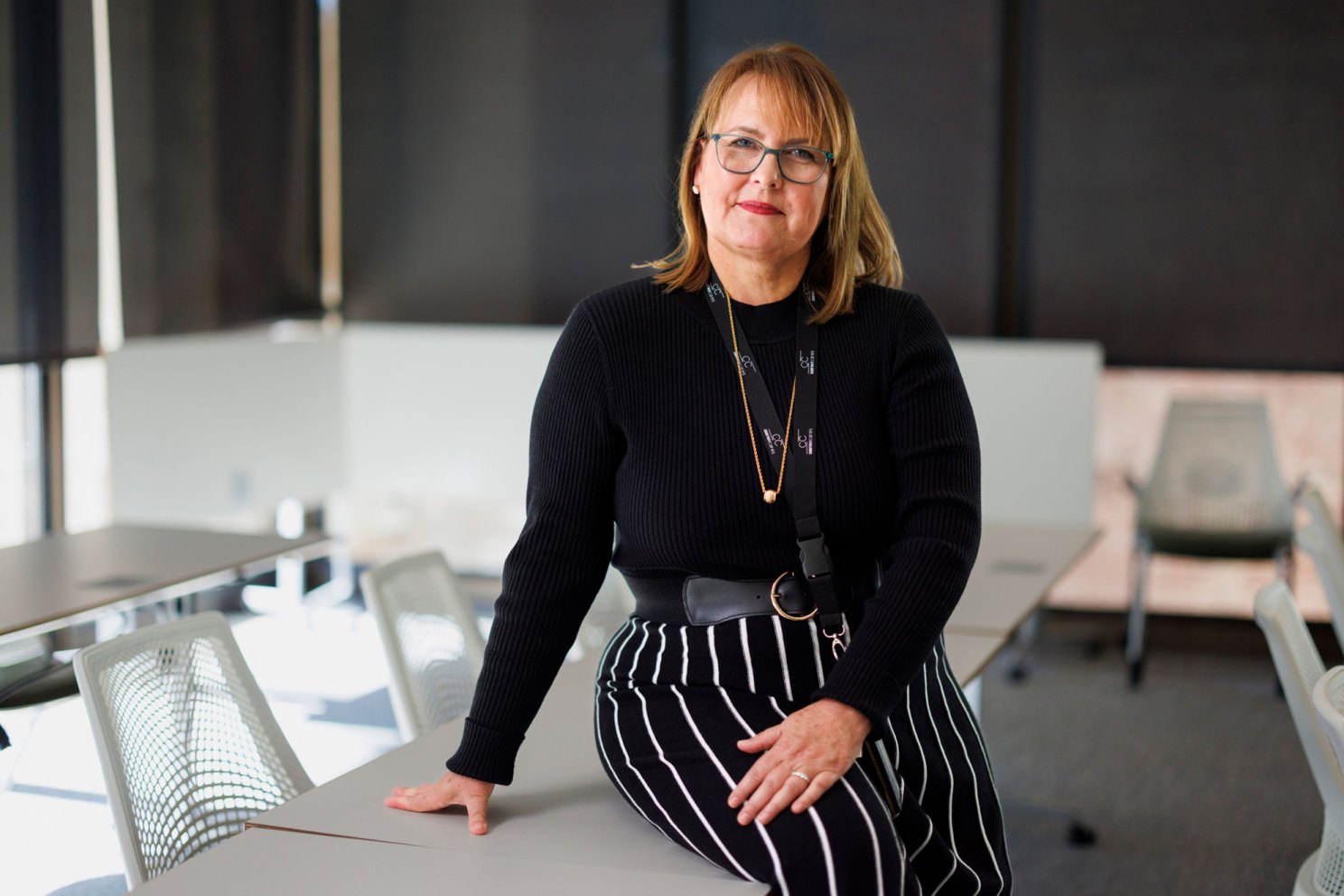When communication could mean life or death

When communication could mean life or death
Workshops on delivering better medical care to deaf patients stress importance of sign language, body language
As a child, MJ Grein would interpret for her deaf mother during medical appointments. At a recent workshop designed to help healthcare professionals communicate more effectively with deaf and hard-of-hearing patients, she shared personal stories with the trademark humor of someone who has made the best of a difficult experience.
She encouraged attendees to learn more sign language, ideally from deaf instructors.
“Everyone can learn sign language. Deaf people can’t learn to hear, and that’s the difference.”
MJ Grein
“Everyone can learn sign language,” said the former sign language interpreter and executive assistant at Harvard Medical School’s Countway Library. “Deaf people can’t learn to hear, and that’s the difference.”
For the deaf and hard-of-hearing, interacting with the healthcare system can be a major source of stress, Grein said. A doctor who knows some basic signs, or even how to work with an interpreter, can substantially improve patients’ experiences.
Grein offered practical strategies. She emphasized the importance of engaging directly with the patient and being attentive to body language and facial expressions.
“You can tell a lot by a person’s facial expressions, even when you don’t know sign language,” she said.
Attendees learned basic vocabulary that might be helpful in medical encounters — signs for words like pain, help, emergency, nurse, doctor, and breathing. “We all know how essential it is to calm someone down, to take deep breaths, in order to help them,” Grein said. Even a few signs, she added, can help make a patient feel more secure.
“I want to demystify it, if you will,” said Grein. “How do you work with an interpreter, if you’ve never worked with one? What are the expectations?”
Grein’s series — launched in September in recognition of Deaf Awareness Month — is one of many programs offered at the medical library, which has become a hub of community engagement and professional development in the Longwood Medical Area, according to Countway’s interim director, Len Levin.
“The library is no longer just a place where we have books and online resources,” Levin said. “It’s a place where we identify all sorts of possible needs for our medical community and try to address them.”
The Countway, which celebrated its 60th anniversary this year, is one of the largest repositories of medical information in the world, Levin said, adding that a 2019-2023 renovation has seen foot traffic more than double.
“Everyone really sees the Countway as sort of like a campus center, which it never was before,” Levin explained, adding that one key reason is enhanced programming, including series like Grein’s.
During Grein’s recent session she explained why she’s become a strong advocate against turning to the children of deaf adults to translate for their parents, especially in sensitive situations.
“Kids are kids,” Grein said. “It’s not their job.”
Latest Harvard
- Class of 2029 yield tops 83%, with international students at 90%Nearly half will pay no tuition
- Step study: 4,000 counts for a lotStudy of older women finds lower disease risk for those who hit that number once or twice a week
- Shielding Americans from corporate ‘tyranny’Former FTC chair Lina Khan highlights agency’s role in checking concentrated economic power
- All good, except grape pizzaUniversity Dining Services directors talk menus, special diets, financial and practical challenges of serving up 2.9 million meals per year
- Cracks in America’s ‘mirror’Former Kennedy Center president urges steps to preserve vitality of the arts
- Is there a right way to write?In podcast, professionals share tips on technique, process — and tapping ‘deepest part of yourself, even if you’re writing something that is set on a spaceship’






